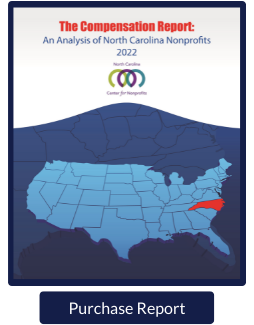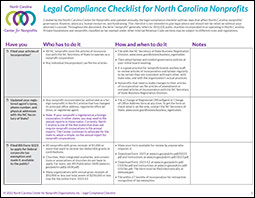“Full Cost” Is the Way Forward
Jeanne Tedrow, President & CEO, North Carolina Center for Nonprofits
Managing a nonprofit’s finances is no small or easy task. Nonprofits and those who seek to do good while making a difference in our communities are to be commended for their ability to manage resources and revenue. More often than not, nonprofits make a way when many would say there appears to be no way. To make things happen for the good, they become creative as they leverage financial support with in-kind donations and volunteer labor.


 Get the up-to-date Legal Compliance Checklist!
Get the up-to-date Legal Compliance Checklist!